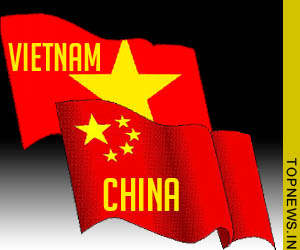Vietnam to review Chinese bauxite mining projects
 Hanoi - Vietnam will review the environmental and economic impact of controversial Chinese-backed bauxite mining projects in the country's Central Highlands, Vietnamese press reported Monday. According to the state-owned Vietnam News, the decision came at a meeting of the Politburo of Vietnam's Communist Party on April
Hanoi - Vietnam will review the environmental and economic impact of controversial Chinese-backed bauxite mining projects in the country's Central Highlands, Vietnamese press reported Monday. According to the state-owned Vietnam News, the decision came at a meeting of the Politburo of Vietnam's Communist Party on April
16, but was not announced to the public until Monday.
The move was seen by some as laying the groundwork for limiting or canceling some of the bauxite projects, which have elicited criticism from environmental scientists and nationalists opposed to Chinese presence on Vietnamese territory.
The Politburo directed the state-owned Vietnam National Coal and Mineral Industries Group (Vinacomin) to proceed on an experimental basis with the first bauxite project, the Tan Rai mine in the province of Lam Dong, constructed by the Chinese mining company Chalco.
The government will issue an environmental and economic impact report this summer on the second Chalco project, the Nhon Co mine in Dak Nong Province, before deciding whether to allow it to proceed.
Critics of the projects welcomed the government announcement.
"I think the Politburo's conclusion is correct," said biologist Nguyen Lan Dung, a National Assembly deputy who last week signed an appeal to the government demanding a review of the projects.
Dung, who represents the province of Dak Nong, said the Politburo decision "satisfied all the petitions from scientists."
"The Politburo should have listened to the scientists before signing the contracts," said Huynh Dang Hy, general secretary of the Vietnam Urban Development Association.
Hy said the signing of the contracts did not meet Vietnamese legal standards and was opposed by the public.
Besides ordering the environmental review, the decision directs the state-owned Vietnam National Coal and Mineral Industries Group (VINACOMIN) to delay issuing shares in the bauxite projects to foreign investors. Initially, Chinese companies had been allowed to own 20 to 40 per cent of the projects, but the new order says a decision on allowing foreign investment "has yet to be made."
The Politburo also asked VINACOMIN to use mainly domestic workers, and only employ foreign experts where necessary. Critics of the projects objected to plans by the Chinese contractor, Chalco, to import thousands of Chinese workers, many of them semi-skilled laborers.
Pham Si Liem, deputy president of Vietnam's General Construction Association, said the move to review the mines had come late, but was a good sign for Vietnam.
"The decision shows that civil society has been paid attention to," Liem said.
Vietnam's estimated 8 billion tons of bauxite reserves, among the world's largest, are concentrated in the country's Central Highlands.
Bauxite is extracted from open-pit mines, requiring replacement of topsoil before the land can be reforested or used for agriculture. The refining process creates large amounts of caustic red slurry, which must be contained so as not to pollute water sources.
Critics say that geological factors make it hard to contain such waste in the Central Highlands, and worry that pollution will affect the local coffee and cacao industries, as well as damaging wildlife and the social fabric of the region's indigenous ethnic minorities.(dpa)